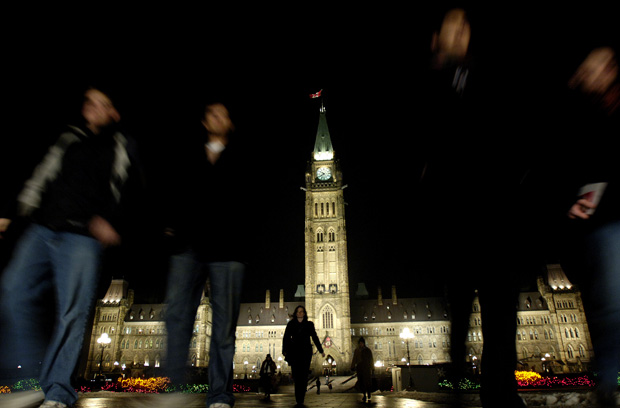OTTAWA – The silence of opposition parties as Conservative backbenchers plead for greater freedom to speak their minds during a period reserved for MP statements in the Commons could be complicating the Speaker of the House’s decision on the issue.

Nine Conservative MPs so far have come out to defend their parliamentary privilege of speaking their minds. The debate was sparked after British Columbia colleague Mark Warawa complained he was prevented from speaking during the 15-minute period allotted for statements before question period.
But NDP and Liberal MPs have been circumspect about the issue which would have an impact on the ability of backbenchers from all parties to carve out a small measure of autonomy. Speaker of the House Andrew Scheer, a Conservative, is being asked to rule on whether party whips should be allowed to approve or stifle statements made by MPs in the 15 minutes before the daily question period.
Without any opposition backing, Scheer could find it even more politically complicated to deliver a ruling that sides with what appears to be a small group of Conservatives against the wishes of his party’s leadership.
NDP House Leader Nathan Cullen, who has spoken on the issue in the Commons but hasn’t taken a firm position, said the NDP doesn’t vet MPs’ statements and thus doesn’t have a strong desire to intervene.
“We use an entirely different system, and a system that allows MPs to speak freely, non-vetted, and speak on behalf of constituents,” said Cullen.
“While New Democrats are committed to this fundamental principle, it just hasn’t been a rising and burning issue for our caucus.”
Massimo Pacetti, the Liberal party’s deputy whip, said his party was still discussing the issue and hadn’t decided whether it would intervene.
Tory MP Stephen Woodworth, who has stood in the Commons to back Warawa, says his party has simply more of a commitment to the issue to begin with.
“The Conservative party policy declaration actually endorses and affirms the right of individual members of Parliament to vote freely on matters of non-core government policy and non-budget issues, and of course if you can vote on an issue you ought to be able to speak on it freely too,” said Woodworth.
“It doesn’t surprise me that Conservative members with that kind of a policy background to support them would pursue this issue.”
Warawa said Wednesday that interventions from the Conservative caucus would continue, but he is standing down on another matter. He told reporters that he was abandoning a battle to have the Commons vote on sex-selective abortions, against the wishes of his party. Prime Minister Stephen Harper promised during the 2011 campaign not to re-open the abortion debate.
Instead, Warawa is introducing a private member’s bill that aims to deal with situations that allow sex offenders to serve house arrest in the immediate residential area of their victims. He noted a case in his riding where a sex offender served house arrest on the same street as the victim, who eventually moved away.
“I came to the conclusion about a half a week ago that the best way to move forward would be to work constructively in Parliament, not go to a vote of appeal, and move a bill that’s very important to my constituents,” said Warawa.
Warawa says he’ll continue to speak about sex-selective abortions at public speaking engagements.



Comments